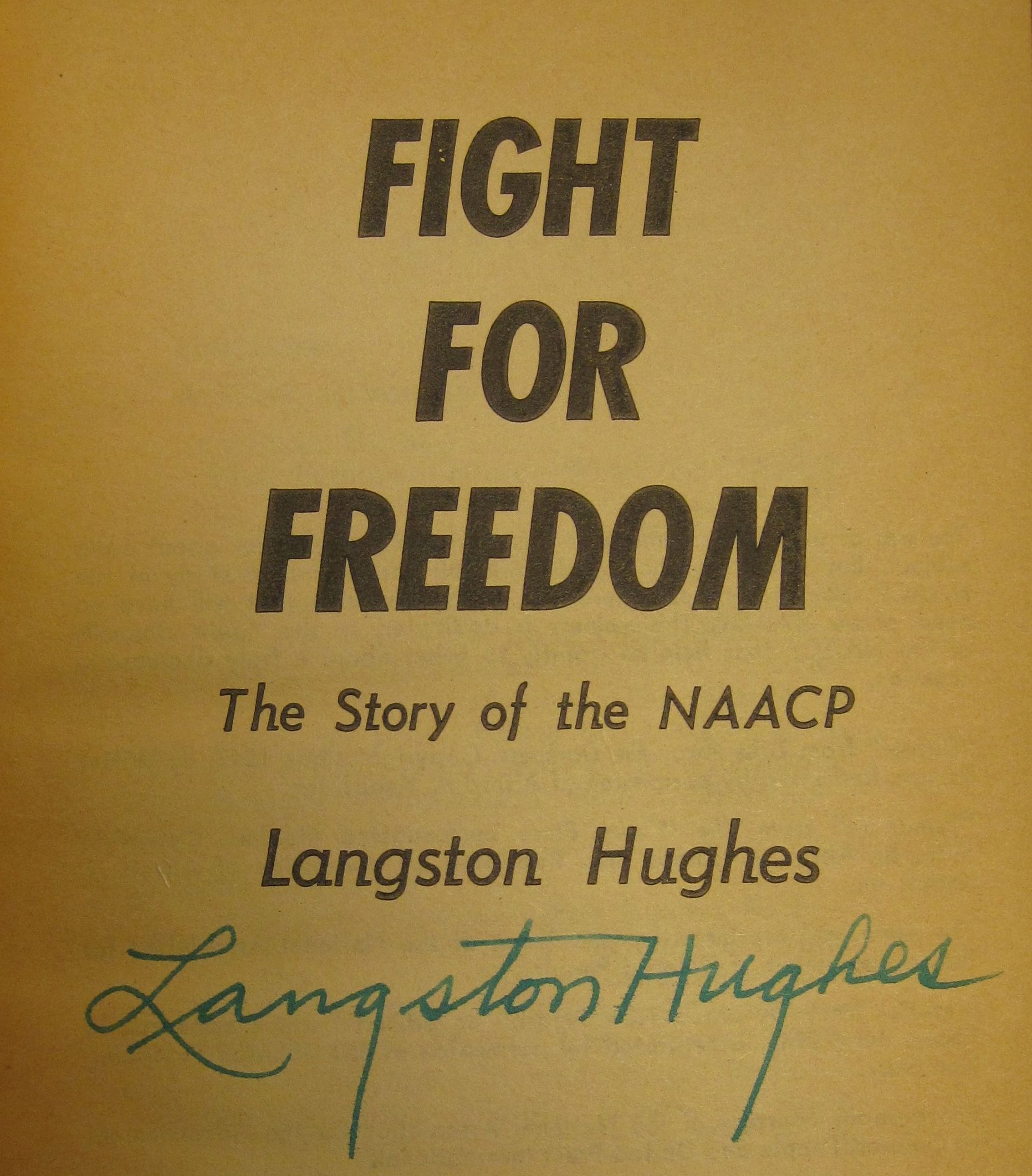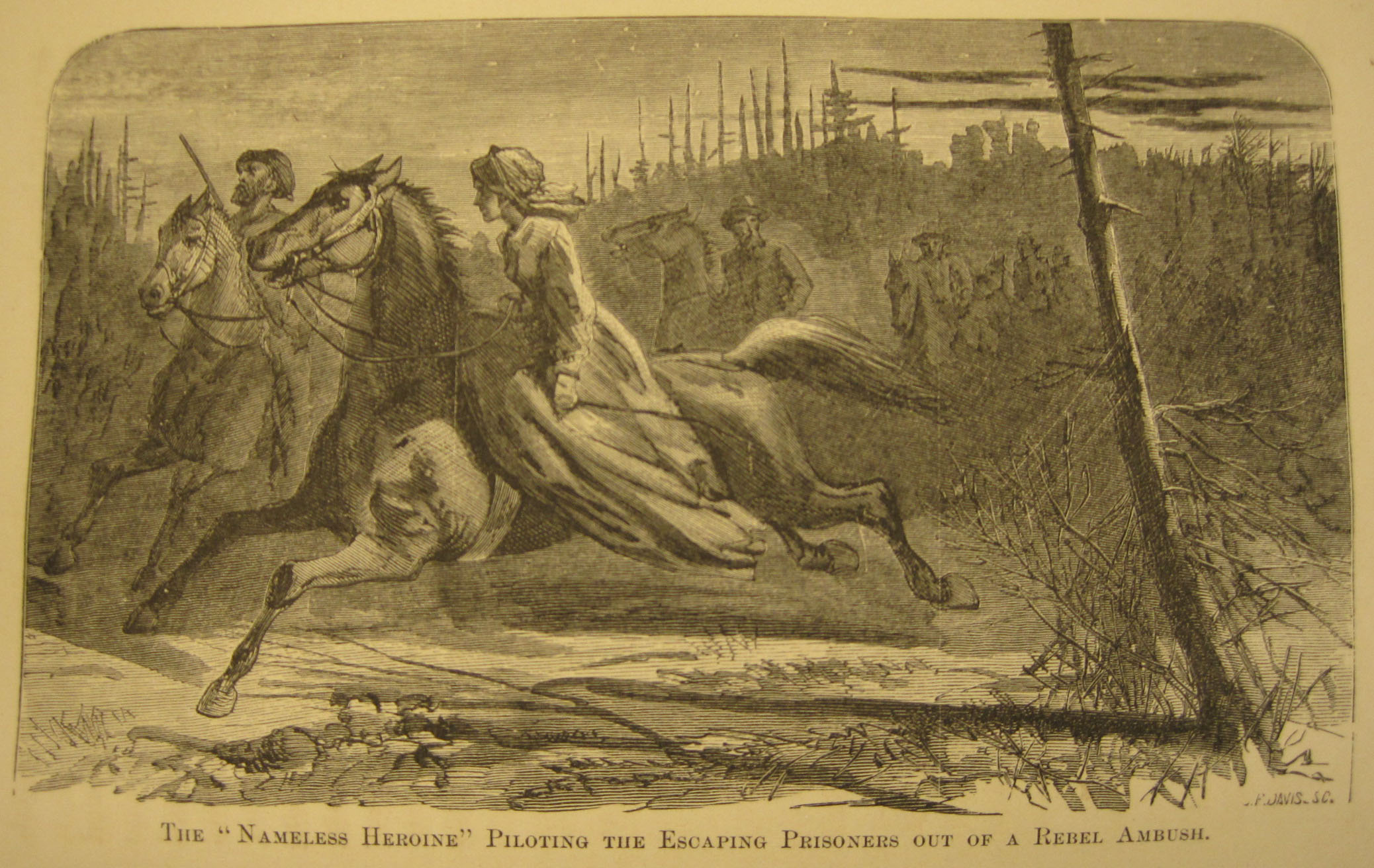SLU’s Rare Books Division boasts four volumes of the poems and stories for which famed writer, activist, and native Missourian Langston Hughes is best known. But did you know that Rare Books is also home to a less acclaimed (though no less worthy) work of Hughes’ non-fiction? Shelved in the history section, separated from the author’s fiction, is a slim paperback titled Fight for Freedom: The Story of the NAACP, also written — and signed — by Langston Hughes.
Published in 1962, Fight for Freedom was the first book-length history of the National Association for the Advancement of Colored People (NAACP). The work begins with a summary of pre-NAACP efforts by African Americans to combat racial oppression in an organized way. From there, Hughes walks readers all the way from the founding of the organization in 1909 to its (then present) state in 1962. He details the NAACP’s major initiatives of the 1960s, among which were equal access to housing, education, transportation, employment, and healthcare for all Americans. While Hughes necessarily discusses the inequalities – and even atrocious hate crimes – that the NAACP sought to combat, the tone of his book is overwhelmingly optimistic and empowering. He emphasizes that the organization is inclusive, and has been comprised of members of all races from its founding.
Hughes’ work includes four pages of black and white photographs, which depict both the violent hate crimes that the NAACP sought to combat (such as the brutal 1933 lynching of Lloyd Warner in St. Joseph, MO) and the organization’s most prominent members (including W.E.B. DuBois and Dr. Virginia Alexander, who, though constantly obstructed on the grounds of both race and gender, persevered in the medical field). The volume is book-ended by a foreword written by Arthur B. Spingarn (who, in 1962, had been president of the NAACP for twenty-three years) and an afterword by Hughes himself. The afterword, titled “An Author’s Postscript: Personal,” gives touching insight into what the NAACP meant to the author in his own life. The young Hughes grew up in a strictly segregated Joplin, MO, reading the NAACP’s magazine, The Crisis (edited by DuBois) on his grandmother’s knee. The adult Hughes’ work was first published in the June 1921 issue of that same magazine, where his poem “The Negro Speaks of Rivers” appears on page 71.

Hughes dedicated Fight for Freedom to the Youth Councils of the NAACP, thanking them for their work toward creating a truly democratic America. He offers words of hope to the young activists of 1962, projecting that “Some day… there will be an America that will have no need of an NAACP.” Fifty-five years on, these words serve as both a continued inspiration and as a rebuke, for while huge advances in racial equality have been made since Hughes’ lifetime, the day when organizations like the NAACP are no longer needed is not yet in sight.

 by
by 





